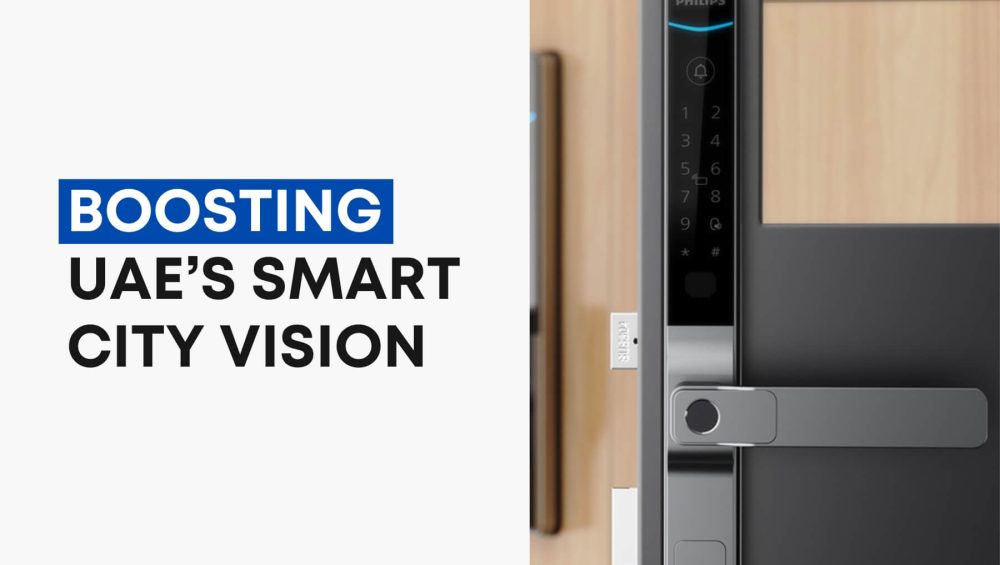The United Arab Emirates (UAE) has set its sights on becoming one of the world’s leading Smart City pioneers by 2030. With initiatives in AI, IoT, and digital governance already reshaping daily life, smart locks are emerging as an essential building block of this transformation. These innovative devices are more than digital door locks — they represent the fusion of security, convenience, and smart technology that the UAE’s vision demands.
Defining the Smart Lock Revolution
Smart locks replace traditional keys with biometric access, RFID cards, smartphone apps, and PIN codes. Imagine unlocking your villa in Dubai with palm vein recognition, or granting your office staff timed access codes remotely. This is not just convenience; it’s future-proof security designed to support the UAE’s connected lifestyle.
Why Smart Locks Matter for UAE’s Smart City Goals
1. Strengthening Security
- Eliminate risks of lost or duplicated keys.
- Features like fingerprint sensors, 3D face recognition, and real-time monitoring protect families and businesses.
- Popular models such as Philips DDL902-MVP and Oji EVO include tamper alarms and encrypted access logs for advanced protection.
2. Elevating Convenience
- No more key handovers to guests or cleaners.
- Control access remotely via mobile apps or Wi-Fi integration.
- Auto-locking and one-tap entry are especially valuable in busy urban settings like Abu Dhabi and Dubai.
3. Seamless Smart Ecosystem Integration
- Connect smart locks with CCTV, smart doorbells, and lighting systems.
- Create a unified smart home or business environment.
- UAE residents increasingly expect end-to-end automation, and smart locks deliver exactly that.
Smart Locks and UAE’s Digital Future
Resource Optimization
Smart locks automate entry control, reducing manpower needs and aligning with the UAE’s resource-efficient smart governance goals.
Data-Driven Security
By generating access logs and usage analytics, smart locks contribute to the data-driven city infrastructure — crucial for safer, smarter communities.
Citizen Empowerment
From homeowners in Sharjah to business owners in Dubai, smart locks give people direct control over their security, aligning with the UAE’s vision of empowering citizens through technology.
Conclusion: Unlocking the UAE’s Smart Future
Smart locks are more than a convenience — they are pillars of the UAE’s Smart City strategy. By combining enhanced security, seamless integration, and resilience to local climate conditions, they play a vital role in shaping safe, connected, and efficient communities.
As Philips and Oji Smart Locks continue to innovate with features like palm recognition, waterproof durability, and app-controlled access, the UAE is steadily moving toward its smart, secure, and sustainable future.
FAQs
How are smart locks helping the UAE’s Smart City vision?
They boost security, automate access, generate useful data, and integrate with wider smart city systems.
Which smart locks are popular in the UAE?
Models like Philips DDL902-MVP, Philips DDL709-FVP, and Oji S617 Waterproof Smart Lock are widely chosen for villas, apartments, and commercial spaces.
Are smart locks reliable in the UAE climate?
Yes. Many models are IP-rated against dust and heat-resistant, making them suitable for aluminum and glass doors common in UAE construction.



